The most amazing minerals
Categories: Nature
By Pictolic https://pictolic.com/article/the-most-amazing-minerals.htmlThe bowels of our planet conceal untold treasures — minerals. Their indescribable diversity and beauty have always conquered human hearts. We offer you to admire a selection of these beautiful samples of frozen natural harmony.
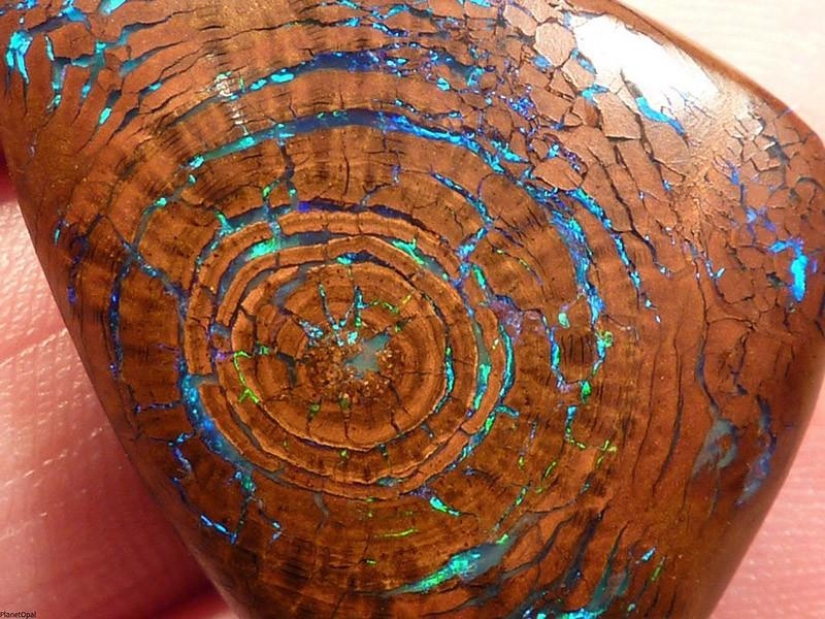
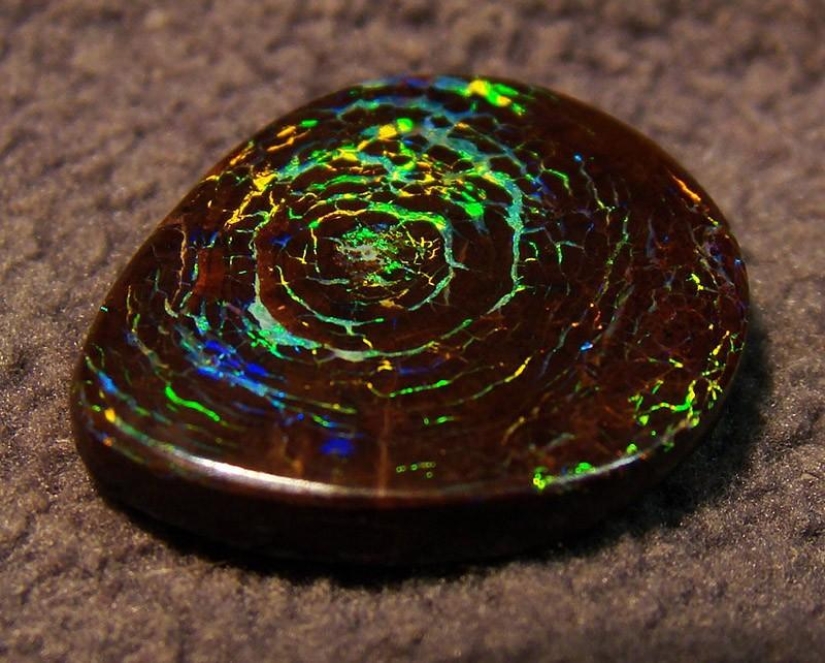
Under certain conditions, fragments of a fallen tree do not decay, but mineralize, turning into real stones of a bizarre shape. This requires hundreds of years and the lack of air access to the material, resulting in a unique mineral resembling fragments of iced wood, speckled with sparkling inclusions of opal or chalcedony.
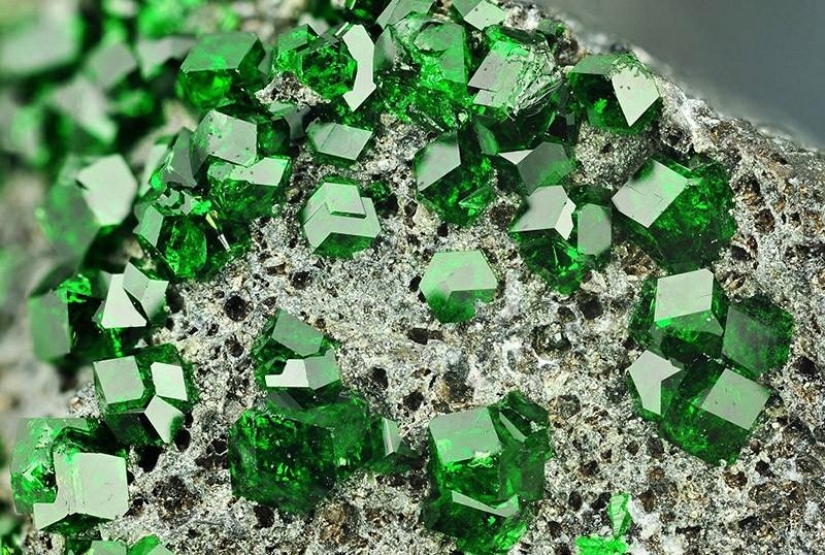
Discovered in the 19th century in Siberia, a stone belonging to garnets was popularly nicknamed the "Ural emerald". The fascinating green color is given to the mineral by chromium. In nature, it is extremely rare, and the few finds are very modest in size. By the way, it is this mineral that Alexander Kuprin meant in his work "Garnet Bracelet".
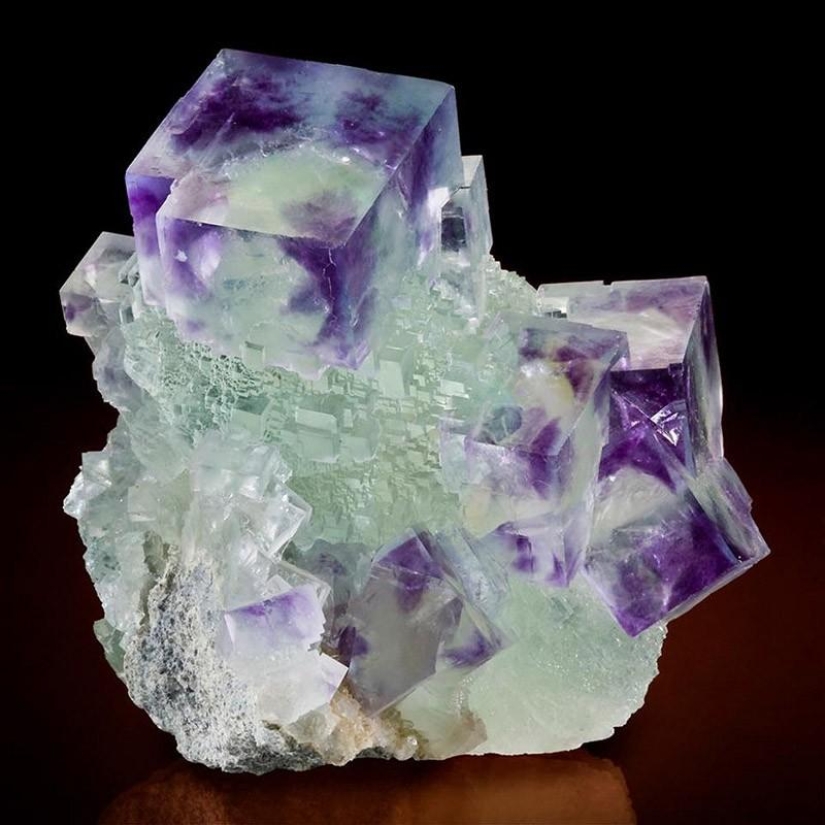
This mineral, which has long been used for decorative purposes and has delighted the eyes of high society with graceful translucent vases and figurines that glow in the dark, has now found a more applied application in optics, becoming an excellent material for creating lenses.
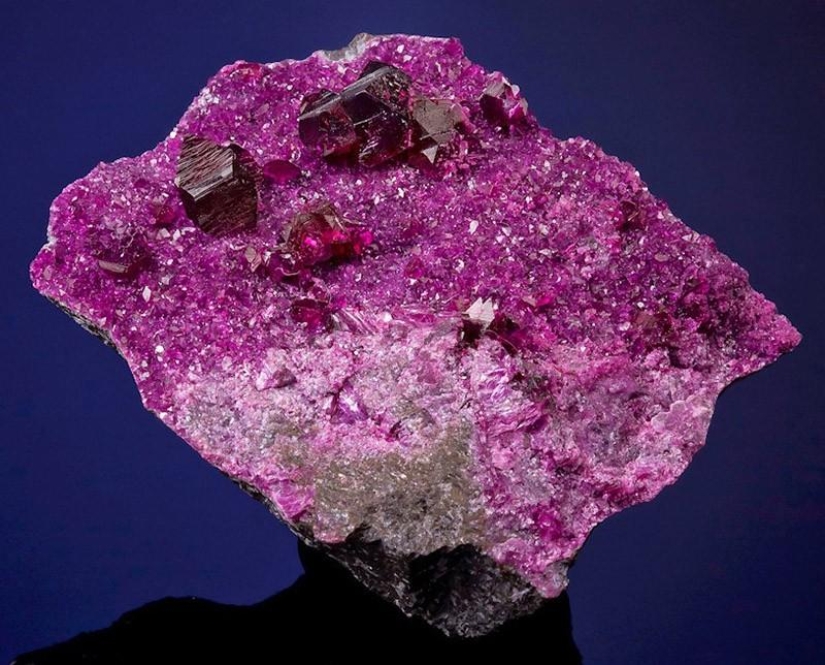
A very fragile fuchsia stone — kemmerite — is considered a collector's item. To make a piece of jewelry out of it, the master needs to apply all his scrupulousness and accuracy. For this reason, the cost of the processed mineral is extremely high.
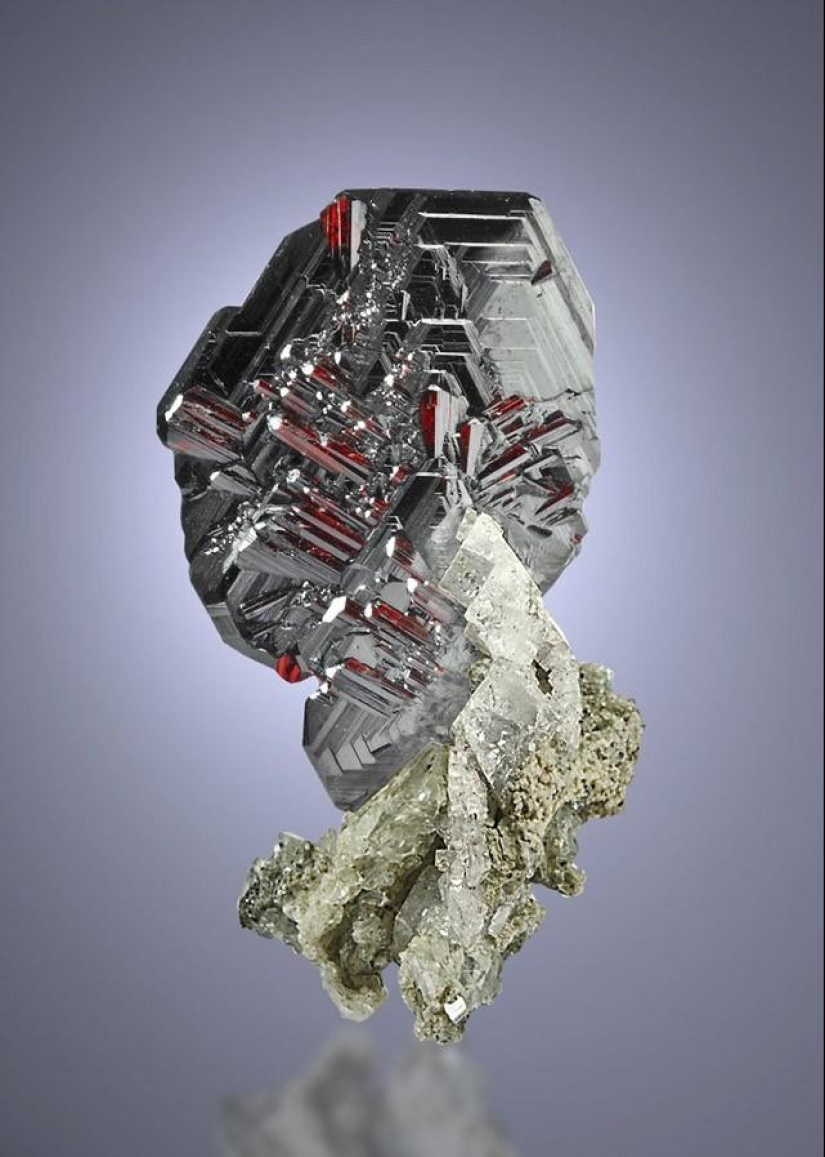
The ability of the black mineral hematite to turn water blood-red during processing has caused many ineradicable superstitions about this stone. But it is not only popular for this reason — hematite is very common in nature and is used, in addition to decorative, in many applied fields.
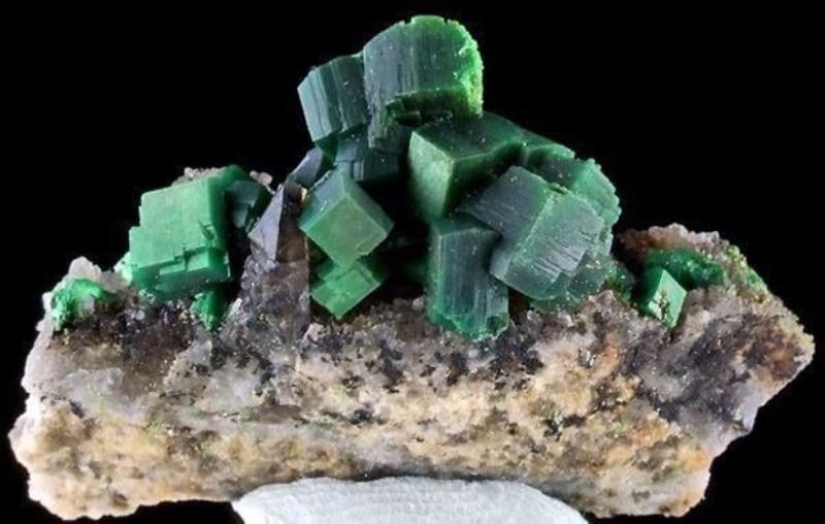
As fascinatingly beautiful as this mineral is, it is also deadly. Prisms of thorbernite crystals contain uranium and can cause cancer in humans. In addition, when heated, these stones slowly begin to emit the most dangerous radon gas for health.
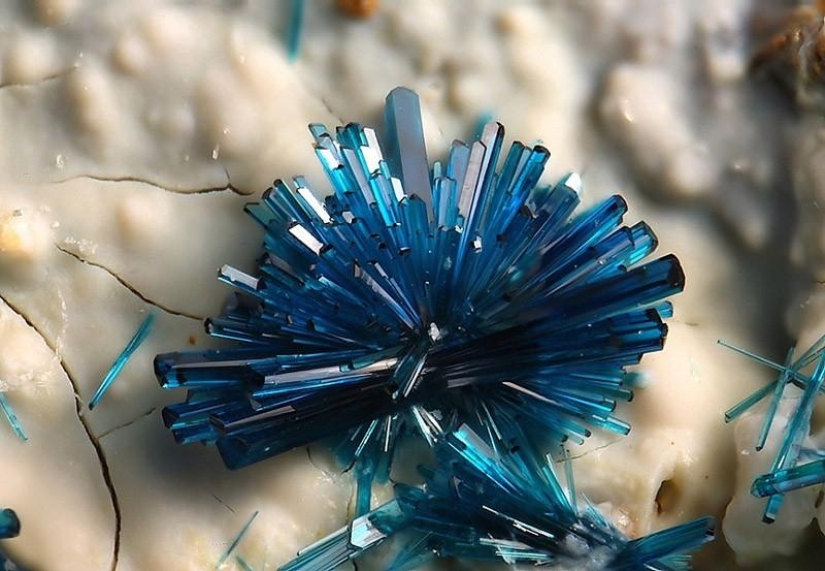
The rare crystal klinoklaz has one small secret — when heated, this exquisitely beautiful mineral emits a garlic smell.
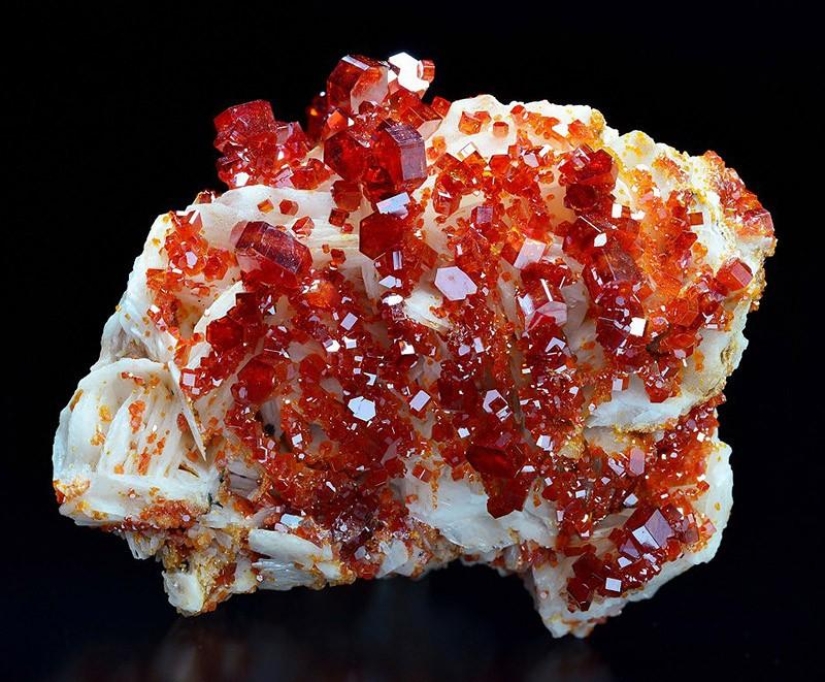
Vanadinite got its name in honor of the Scandinavian goddess of beauty Vanadis. This mineral is one of the heaviest on the planet because it has a high lead content. It is worth keeping vanadinite crystals away from sunlight, as they tend to darken under their influence.
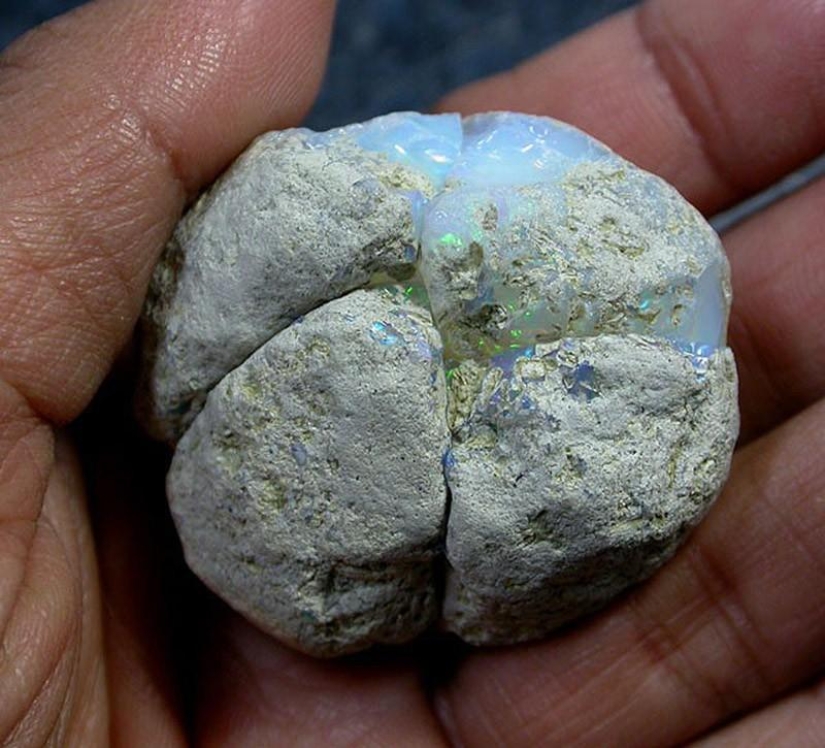
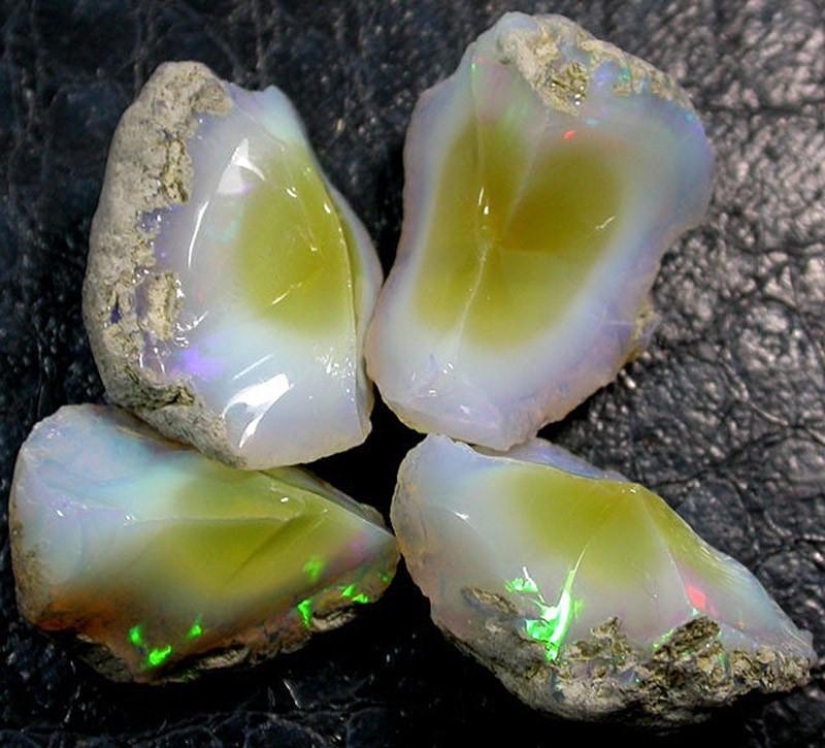
In places rich in minerals, you can find geodes — geological formations that are cavities hiding a variety of minerals inside. Geodes can look extremely outlandish and attractive on slices and chips.
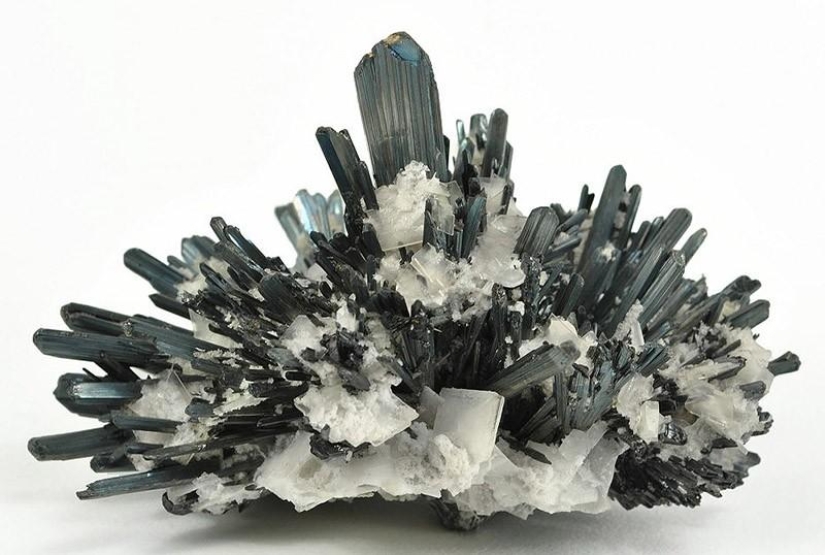
Stibnite is a sulfide of antimony, but it seems that it consists of high-grade silver. Thanks to this similarity, one day someone decided to make elite cutlery out of this material. And it was a very bad idea... antimony crystals cause severe poisoning, even after contact with the skin, it is necessary to thoroughly wash it with soap.
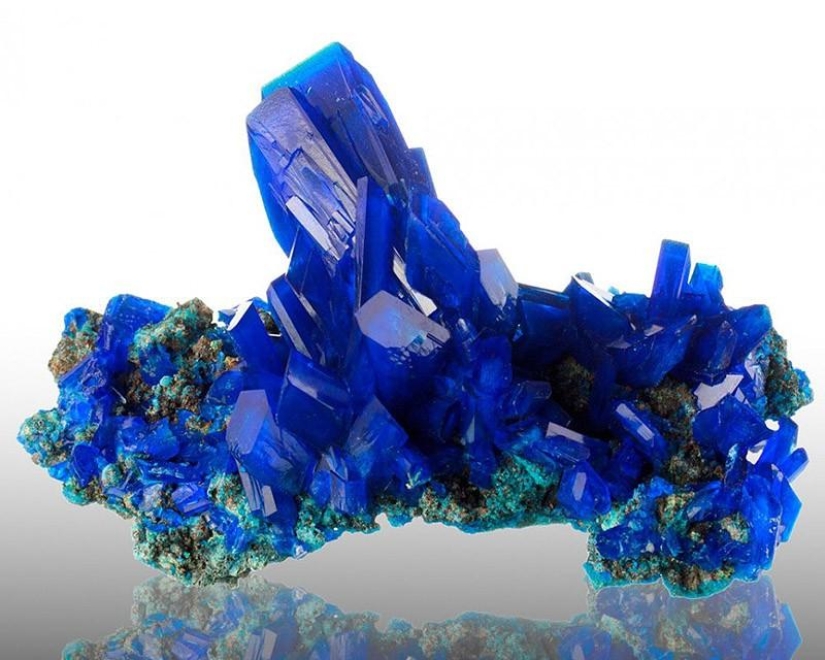
The charming beauty of these crystals hides a deadly danger: once in a liquid medium, the copper contained in this mineral begins to rapidly dissolve, threatening all living things that get in its way. Just one small blue stone can destroy a whole pond with all its flora and fauna, so you should treat it with extreme caution.
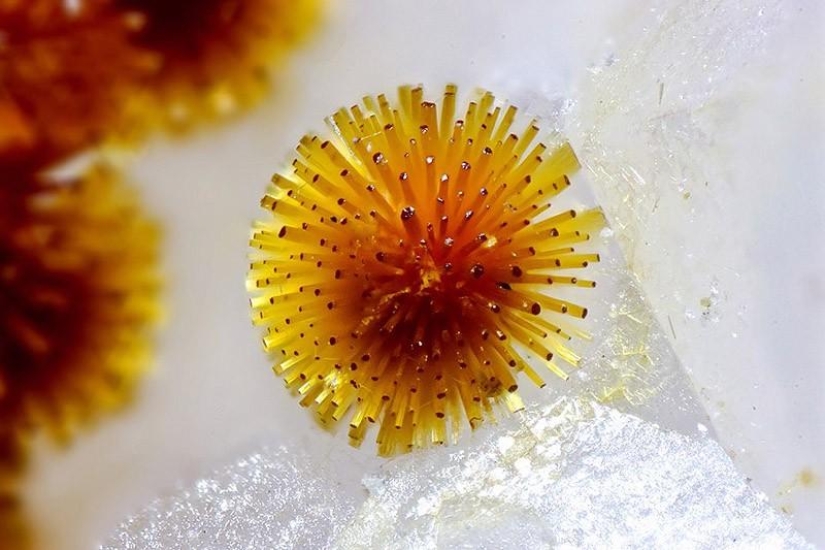
Performing the role of inclusion, this rare mineral is able to give quartz and amethyst a unique color and a higher cost. As a representative of needle crystals, cacoxenite is incredibly fragile.
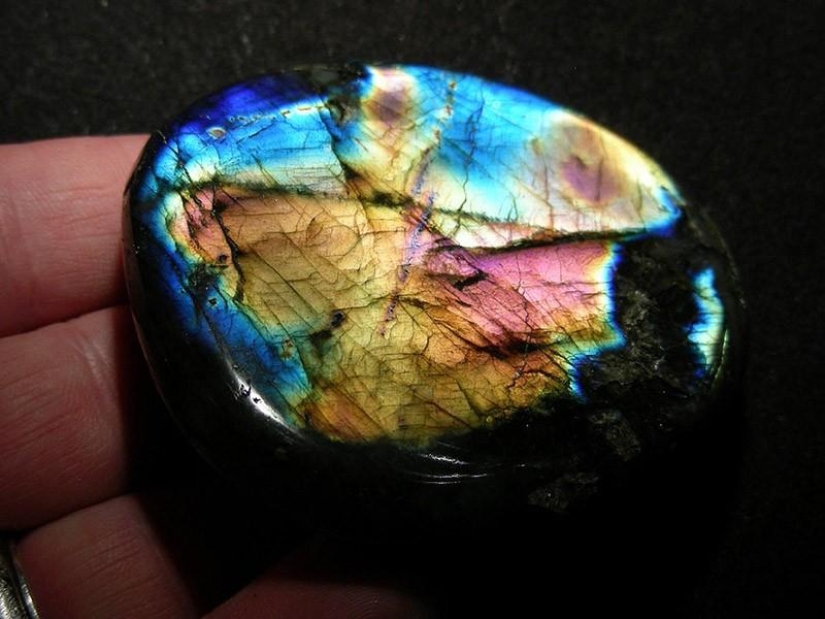
The mineral mined in the northern regions seems to reflect the sky under which it was found: the colored iridescences against the background of the darkness of the stone dotted with sparkling stars resemble the northern lights blazing on a long polar night.
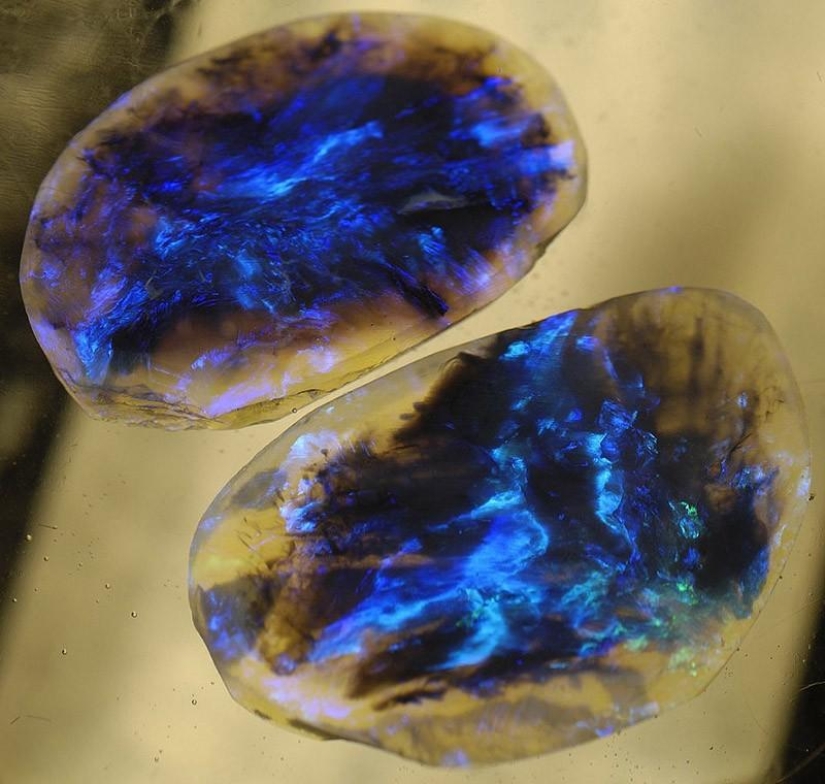
The most valuable kind of opals. Despite the word "black" in the name, this mineral gets the highest value if it has a multicolored sparkle on a dark background. The more diverse the shades of its radiance, the higher the price.
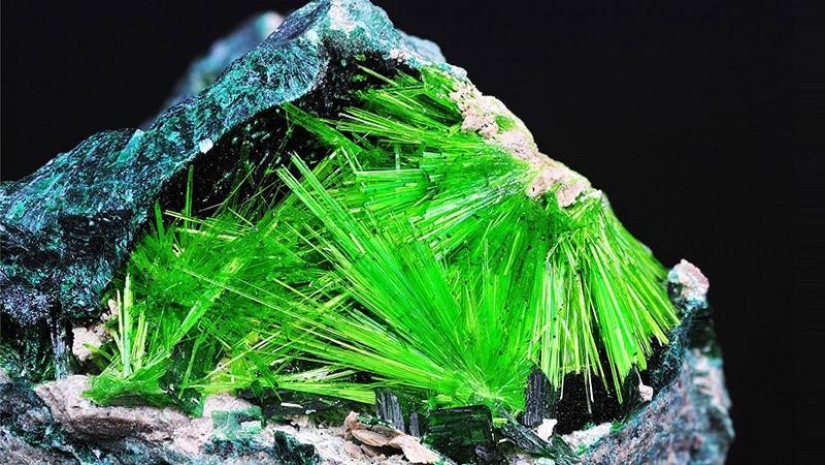
Needle crystals of kuprosklodovskite attract admiring attention with the depth and variety of their green coloring, as well as an interesting shape. However, this mineral is mined in uranium deposits and is characterized by high radioactivity, and it should be kept away not only from living beings, but even from other minerals.
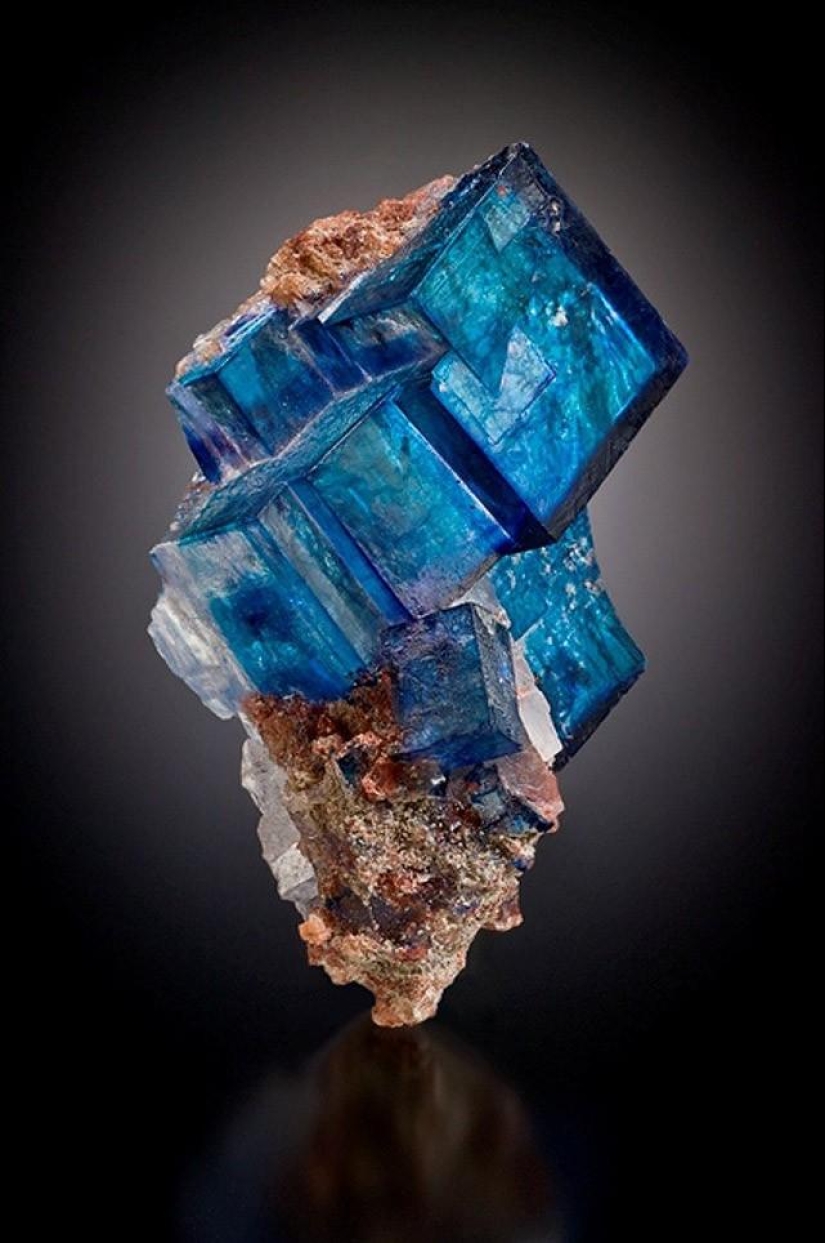
Milky-white or whitish sylvite is often found in volcanoes, and blue halite (sodium chloride) — in sedimentary rocks.
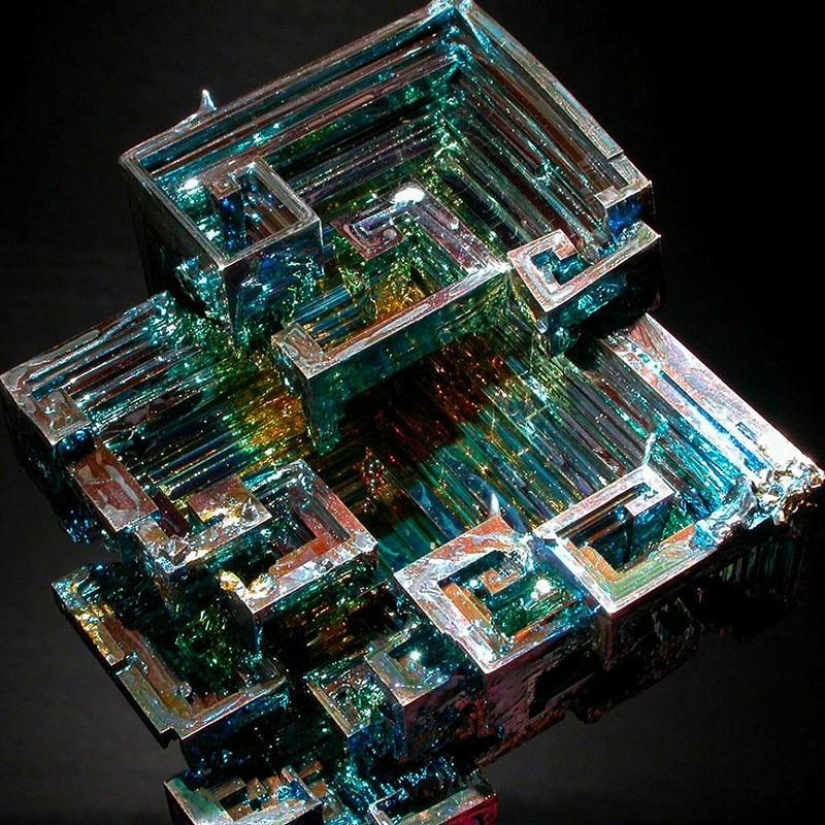
Artificially grown bismuth crystals have a recognizable iridescent sheen on their dark surface. This effect occurs due to the oxide film covering it. By the way, bismuth oxide-chloride is used in the creation of nail polishes as a means to give them shine.
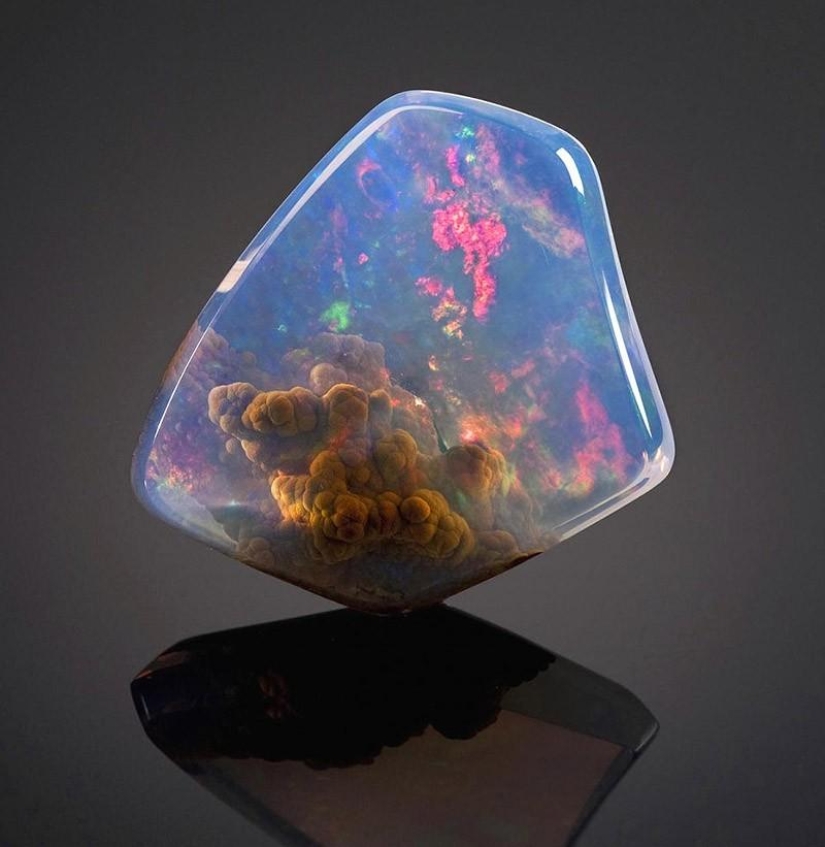
The noble opal gemstone is demanding of the humidity surrounding it: if it stays in excessively arid conditions for a long time, it can fade and even crack. For this reason, opals should occasionally be "bathed" in clean water, and also worn more often if they are presented in the form of jewelry, so that the stones are saturated with moisture emanating from the human body.
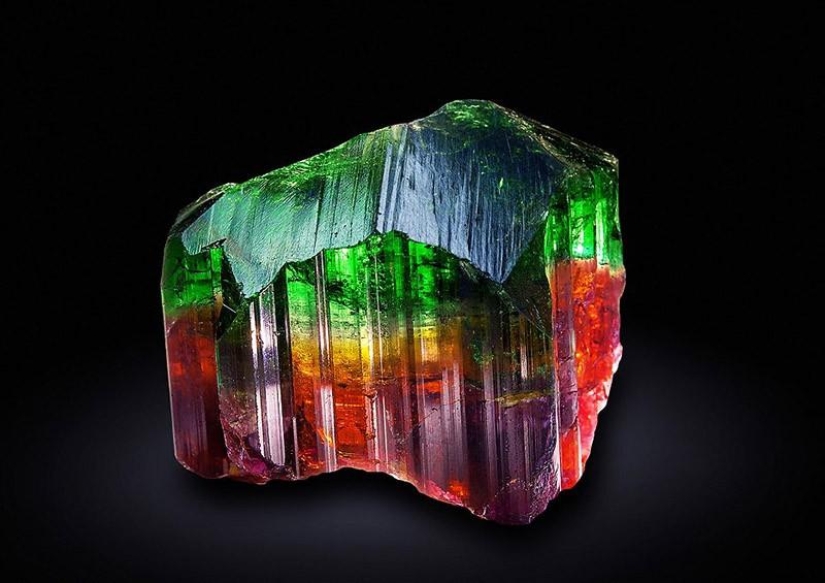
Juicy red and pink colors, smooth transitions of shades with the most unexpected ranges make tourmaline one of the most popular collectible minerals. According to historians, such stones were crowned by many ornaments and accessories of members of royal families and famous persons: from Catherine the Second to Tamerlane.
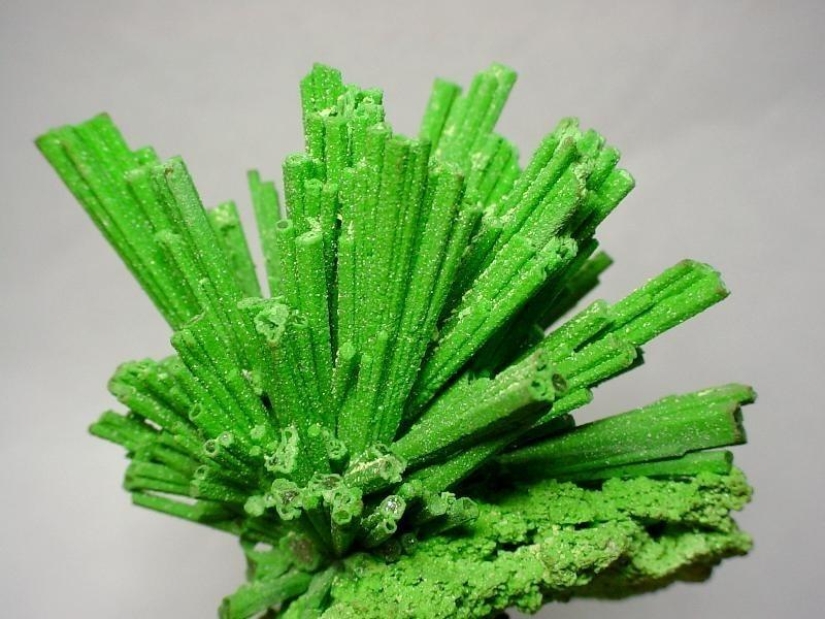
The rare bayldonite crystal owes its color to the copper contained in its composition, and its luster to a high percentage of lead.
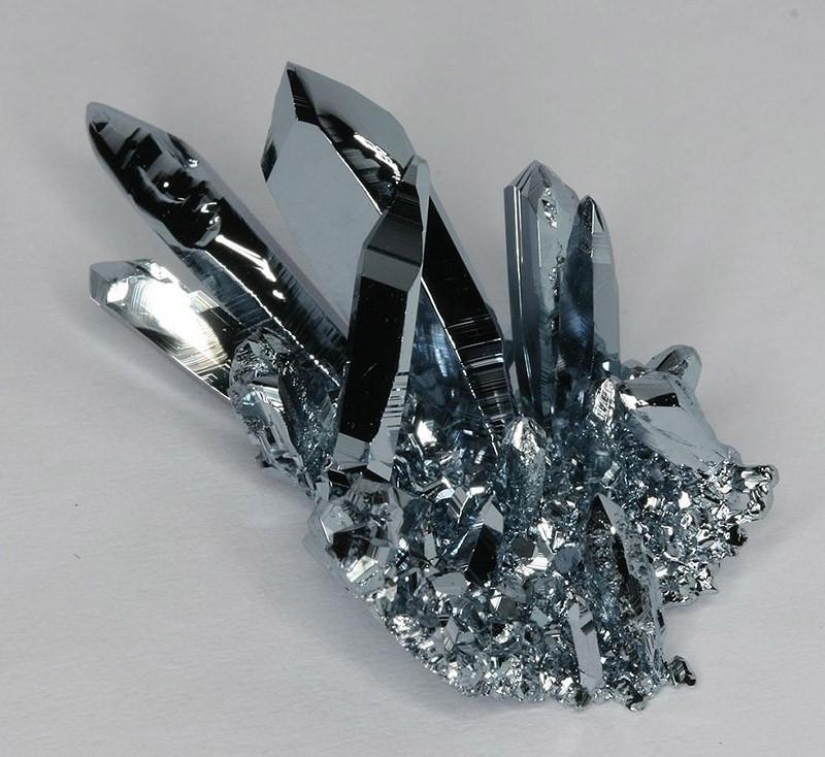
Having the status of the densest natural substance, osmium is extremely difficult to process in any way. The widespread use of this metal in medicine, manufacturing and the defense industry makes the demand for it incredibly high. And given the rarity of osmium in nature, the cost of one gram of its isotope is currently equal to twenty thousand dollars.
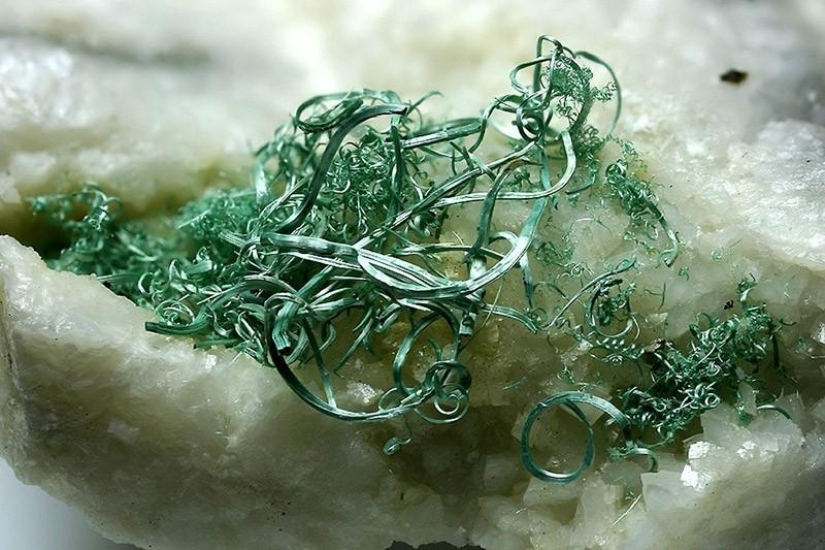
The quirkiness of the location of copper layers in the voids of karst caves, where malachite originates, determines the future structure of its patterns. They can be represented by concentric circles, star-shaped placers or chaotic ribbon patterns. Archaeologists estimate the age of malachite beads found in the ancient city of Jericho at 9 thousand years.
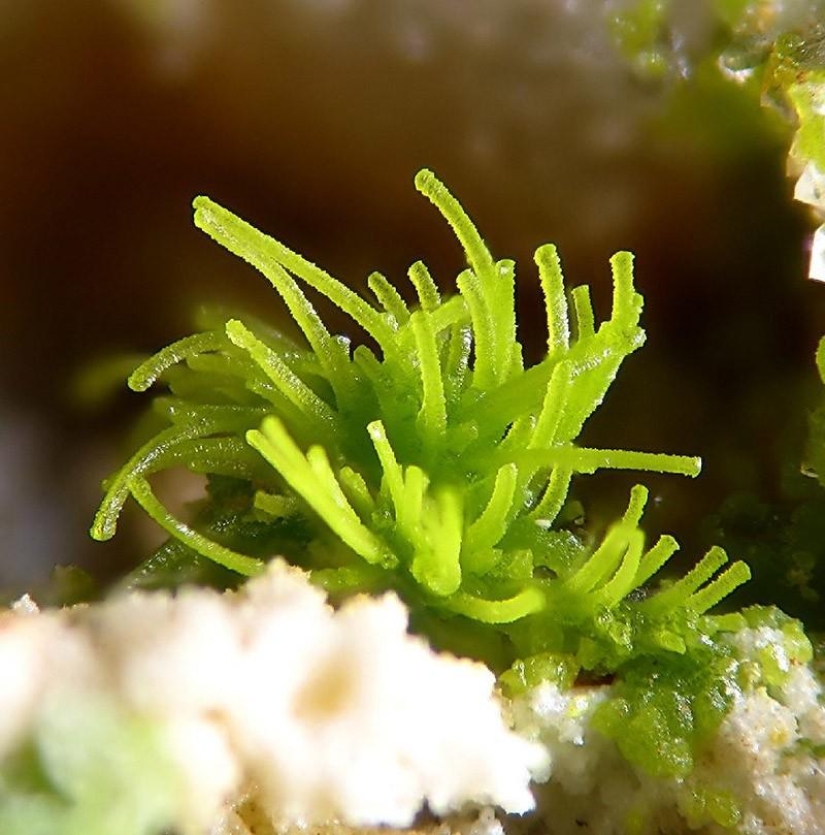
A rather rare mineral emmonsite, presented in the form of small needle-like crystals with a glass luster, is found in the mines of North and South America.
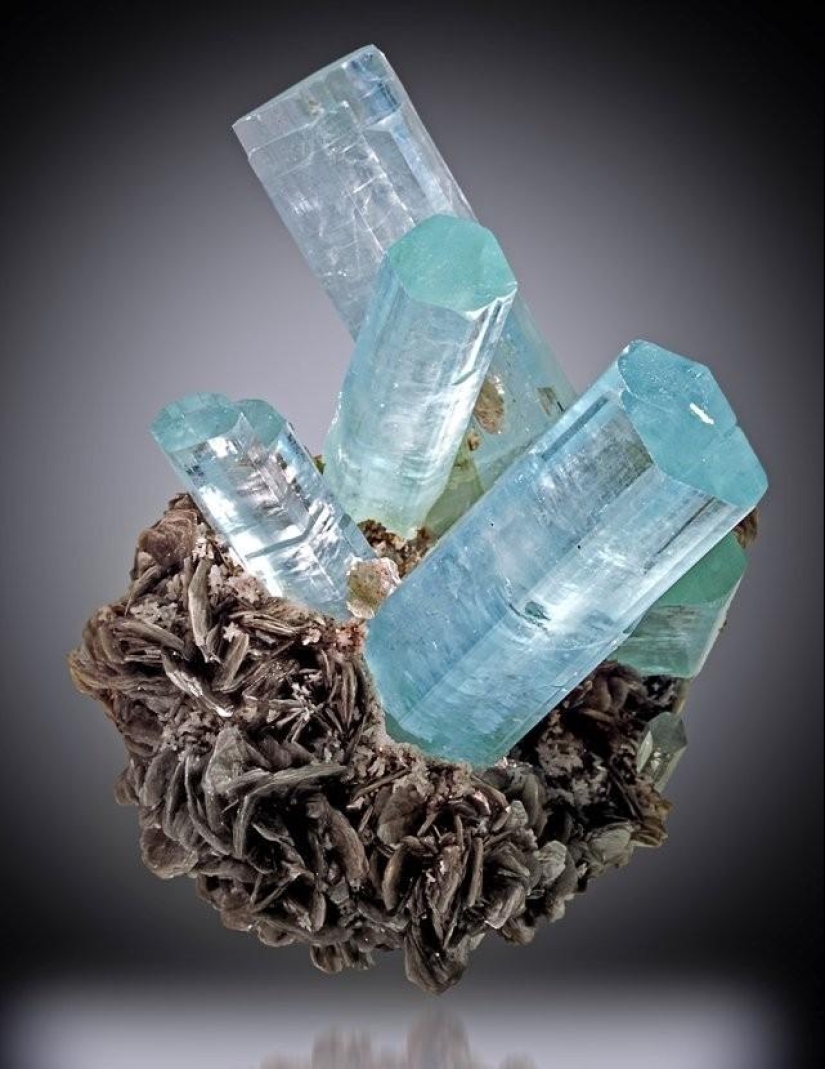
For the similarity of facets to the purest sea waves, the Roman thinker Pliny the Elder gave this noble stone the name "aquamarine". More blue aquamarines are valued more than greenish ones. This mineral is very popular with designers and jewelry lovers, and its highest strength helps to create jewelry of any configuration by the way.
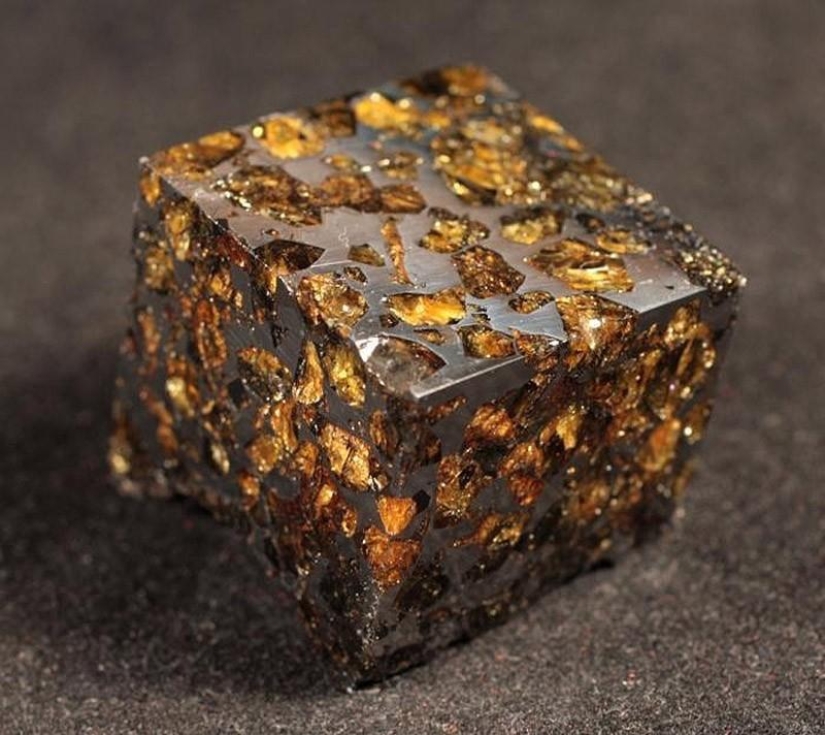
In 1777, the German scientist Pallas delivered to the Kunstkammer Museum samples of a rare metal found in Krasnoyarsk at the site of a meteorite fall. Soon in The entire block of extraterrestrial origin weighing 687 kg was transported to St. Petersburg. This material was called "pallas iron", or pallasite. A similar substance from those that are mined on our planet has not been found. According to experts, this meteorite is an iron-nickel base with numerous inclusions of olivine crystals.
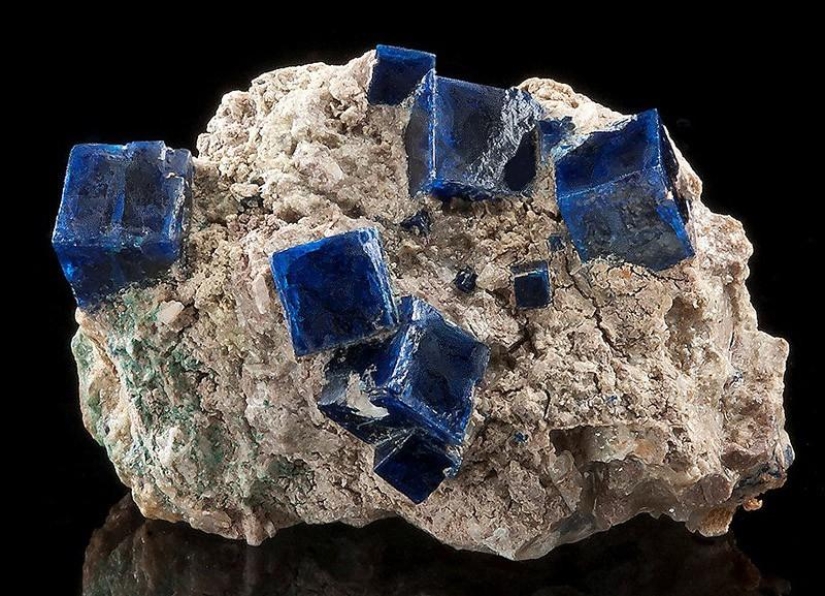
Small cubic crystals of blue color — boleites — are especially appreciated in the countries of South and North America. So far, this rare mineral has not been noticed in Russia.
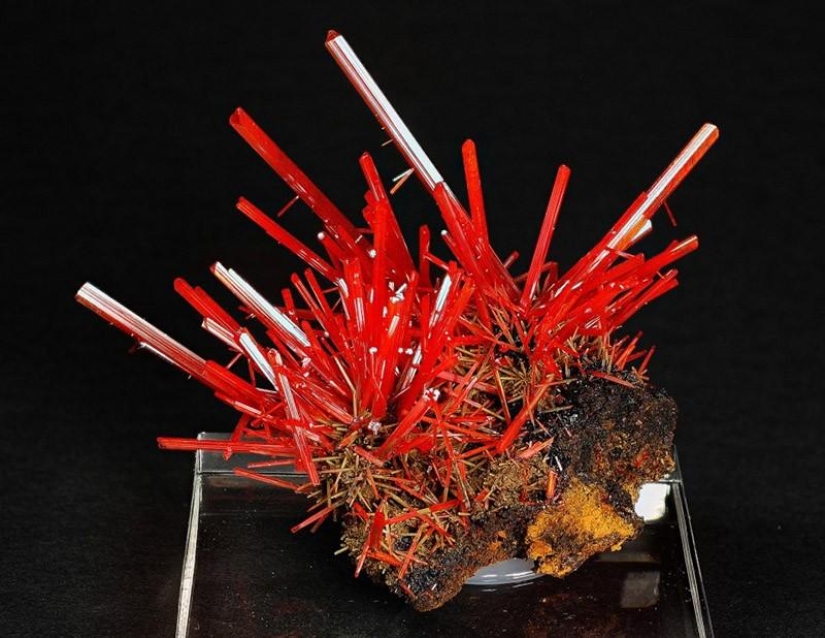
The name "crocoite" comes from the ancient Greek word meaning "saffron", since the similarity of the crystal surface with this spice is noticeable to the naked eye. Red lead ore, which is this mineral, is of particular value to collectors and connoisseurs.
Recent articles

Illustrator from Canada Mark Gagne (Mark Gagne) presented a series of works called "Ink Photography" (Inked Photography). If you ...

Someone thinks that perfectionism is a disease that should be treated. Someone, on the contrary, teaches others how to restore ...

Although body positivity is actively promoted to the masses these days, slim figures remain trendy. Even those who demonstrate ...